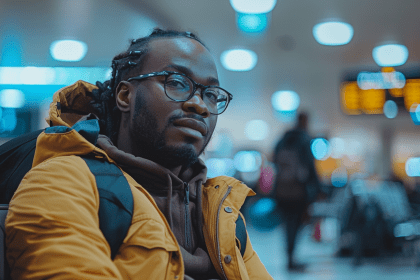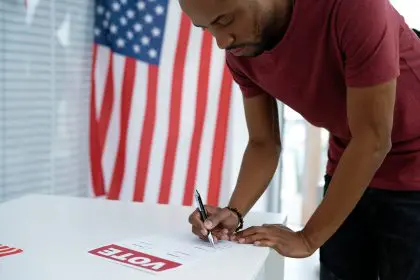 Ever since the Democrats established the legality of mandatory minimums and three-strike laws under the leadership of the late Massachusetts Sen. Ted Kennedy, African Americans have literally had the book thrown at them and the key thrown away. Regardless of circumstances, as
Ever since the Democrats established the legality of mandatory minimums and three-strike laws under the leadership of the late Massachusetts Sen. Ted Kennedy, African Americans have literally had the book thrown at them and the key thrown away. Regardless of circumstances, as
convicted felons they all have served time and lost their right to vote.
In New York, a Columbia University student who was the main focus of an undercover investigation of a campus-wide drug distribution ring will be sentenced to six months in jail after pleading guilty to selling and distributing cocaine. Harrison David, 20, was one of five students arrested via operation Ivy League last December and will serve his time on Rikers Island starting Aug. 30, 2011.
Ironically, he was charged with the most serious crime of the five students. The four other students are seeking resolution in which they could get off with counseling and the complete avoidance of having criminal records
David will be on probation for five years after he is released from jail. This even though the charge of second-degree criminal sale of a controlled substance carries a mandatory minimum sentence of three years in prison and a maximum of 10. The city’s Office of the Special Narcotics Prosecutor allowed David, who studied engineering at Columbia, to plead down to third-degree sale of a controlled substance, which does not have a mandatory sentence. They are even allowing him to apply for a certificate of relief, which would allow him as a convicted felon, to retain his right to vote.
More than 60 percent of the people in prison are now racial and ethnic minorities, with black males in their twenties accounting for 1 in every 8 persons in prison or jail on any given day. In fact, black males continued to make up the largest segment — 44 percent — of all prisoners serving time for drug offenses, although they were only 12 percent of the total population, while whites, who were 75 percent of the national population, made up 27 percent of all imprisoned drug offenders.
Even with a black president, America still has a problem. There are no black men in Obama’s inner circle, but there sure are a lot incarcerated. Albeit whites and blacks engage in drug offenses, possession and sales, at roughly comparable rates, in New York, blacks are 33 percent more likely to be detained awaiting felony trials than whites facing felony trials, have a public defender for their lawyer and receive sentences that are 10 percent longer than white offenders for the same crimes. –torrance t. stephens, ph.d.














